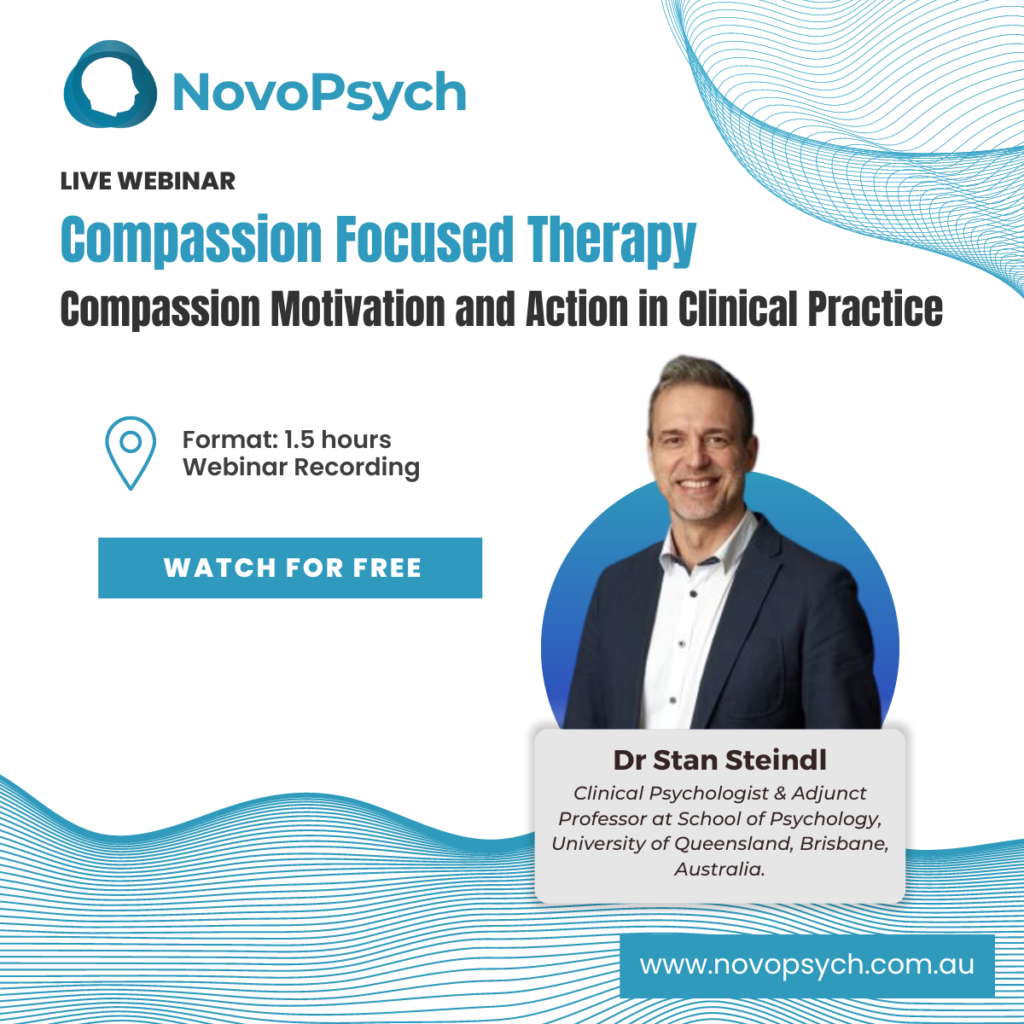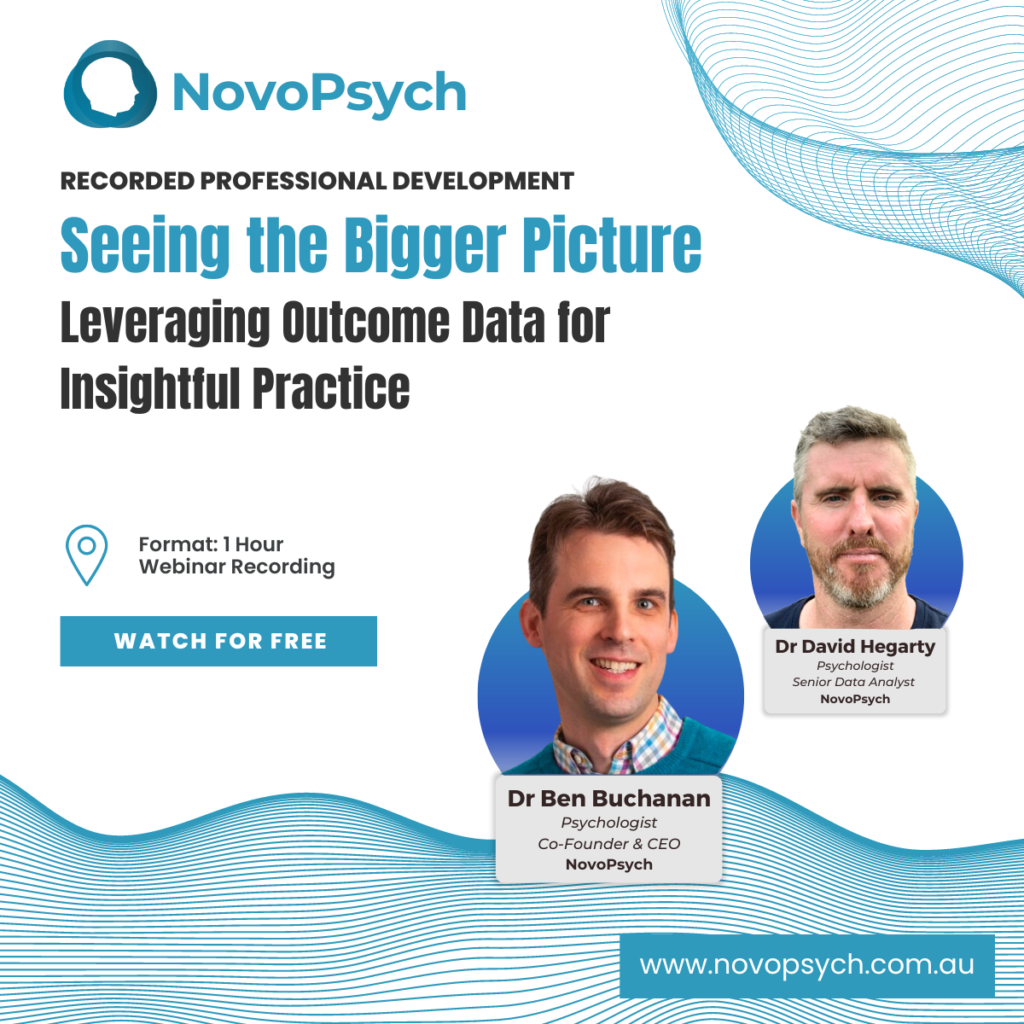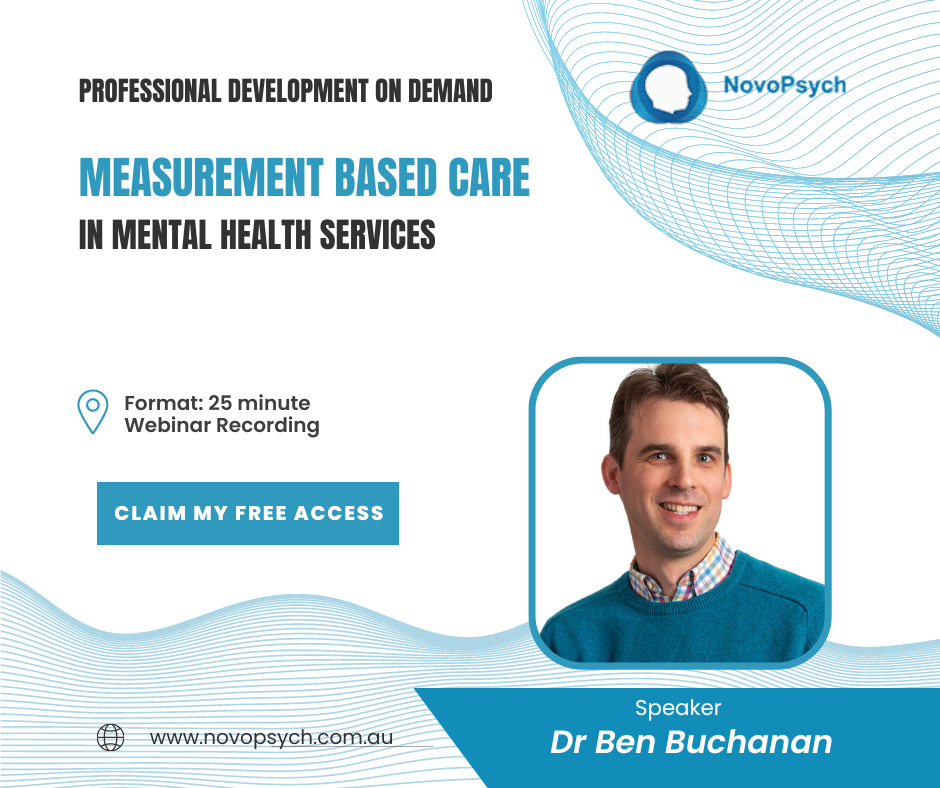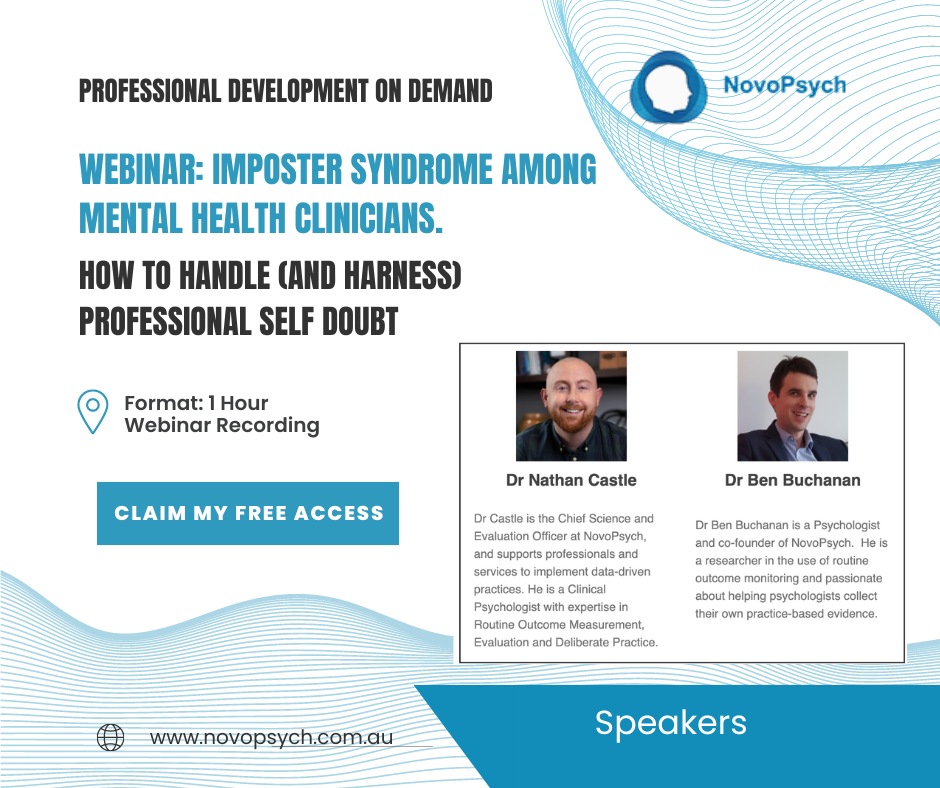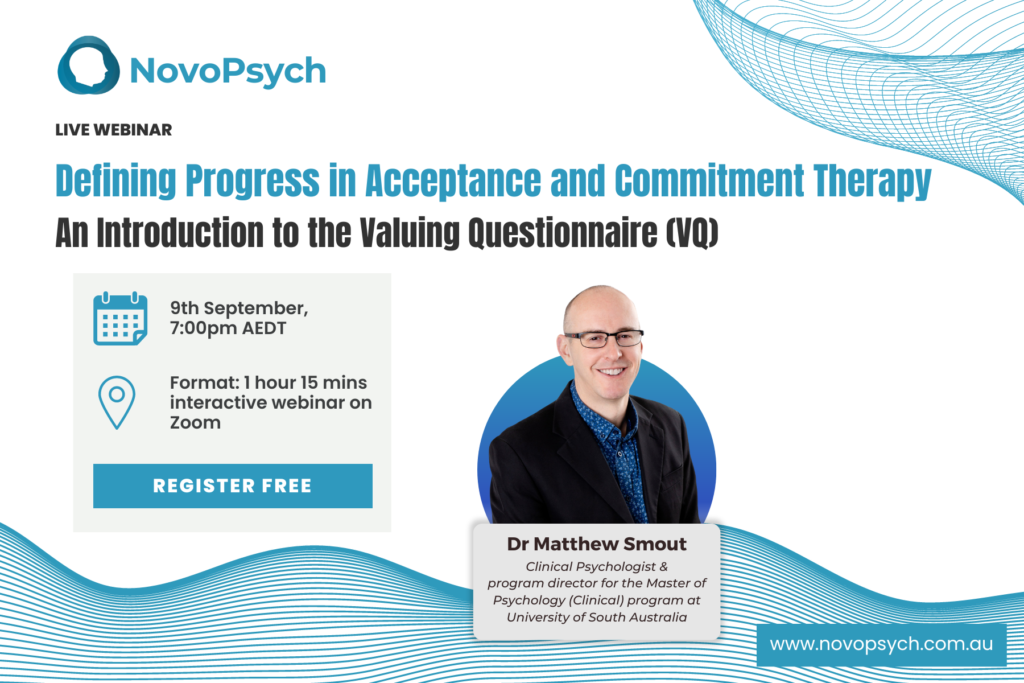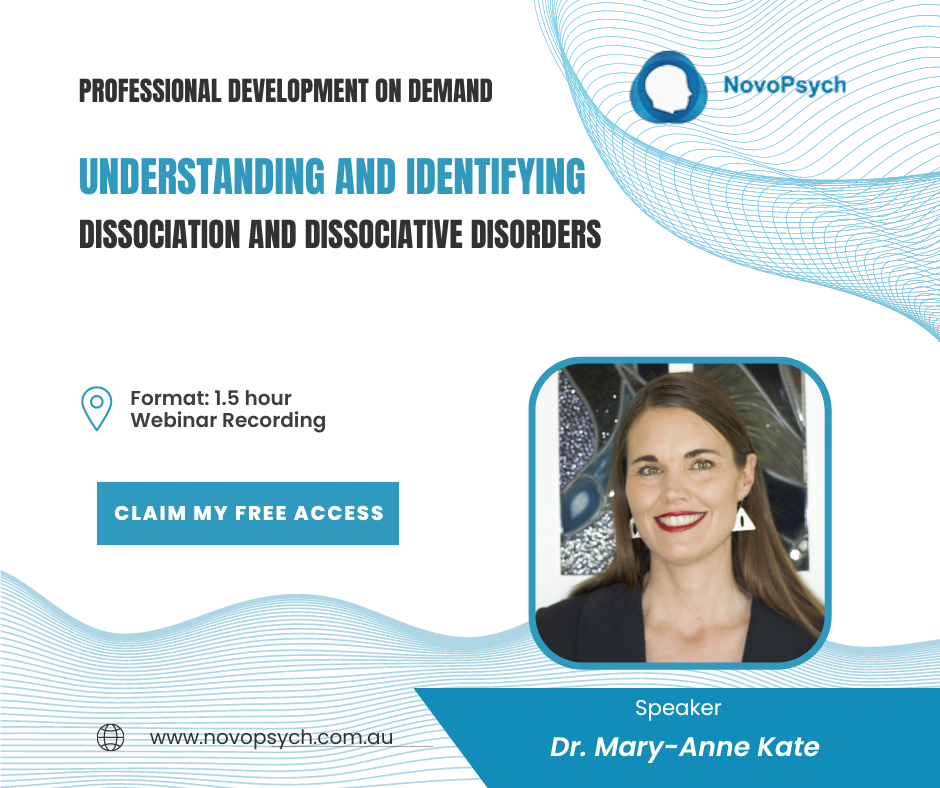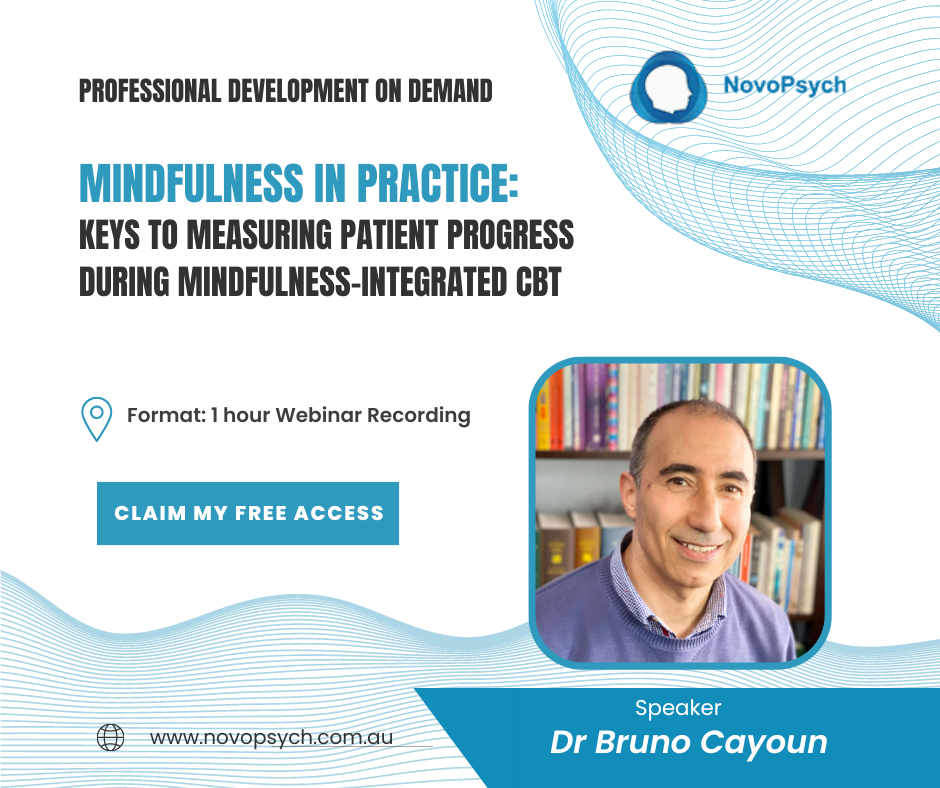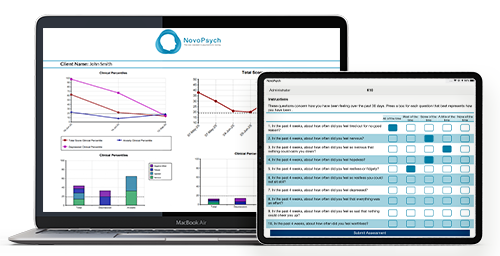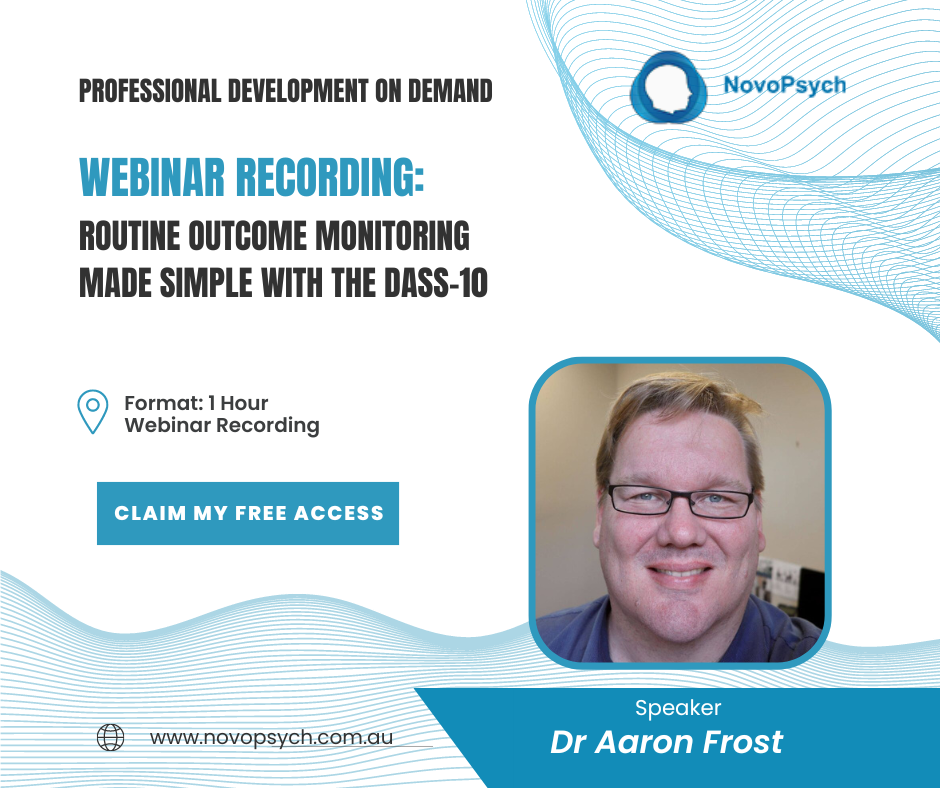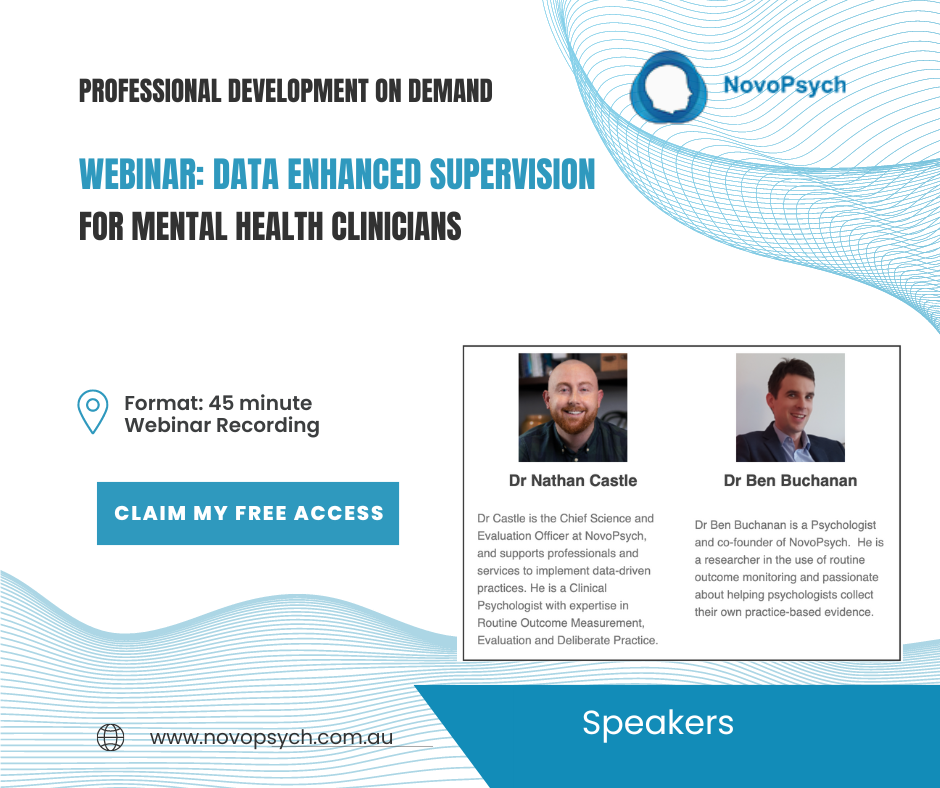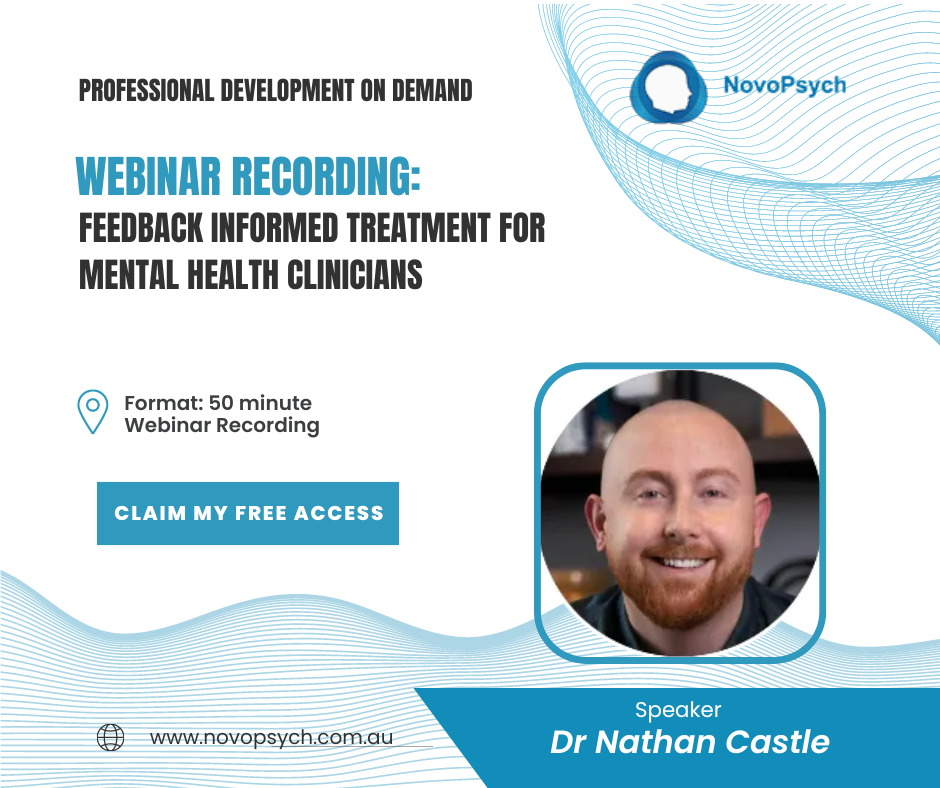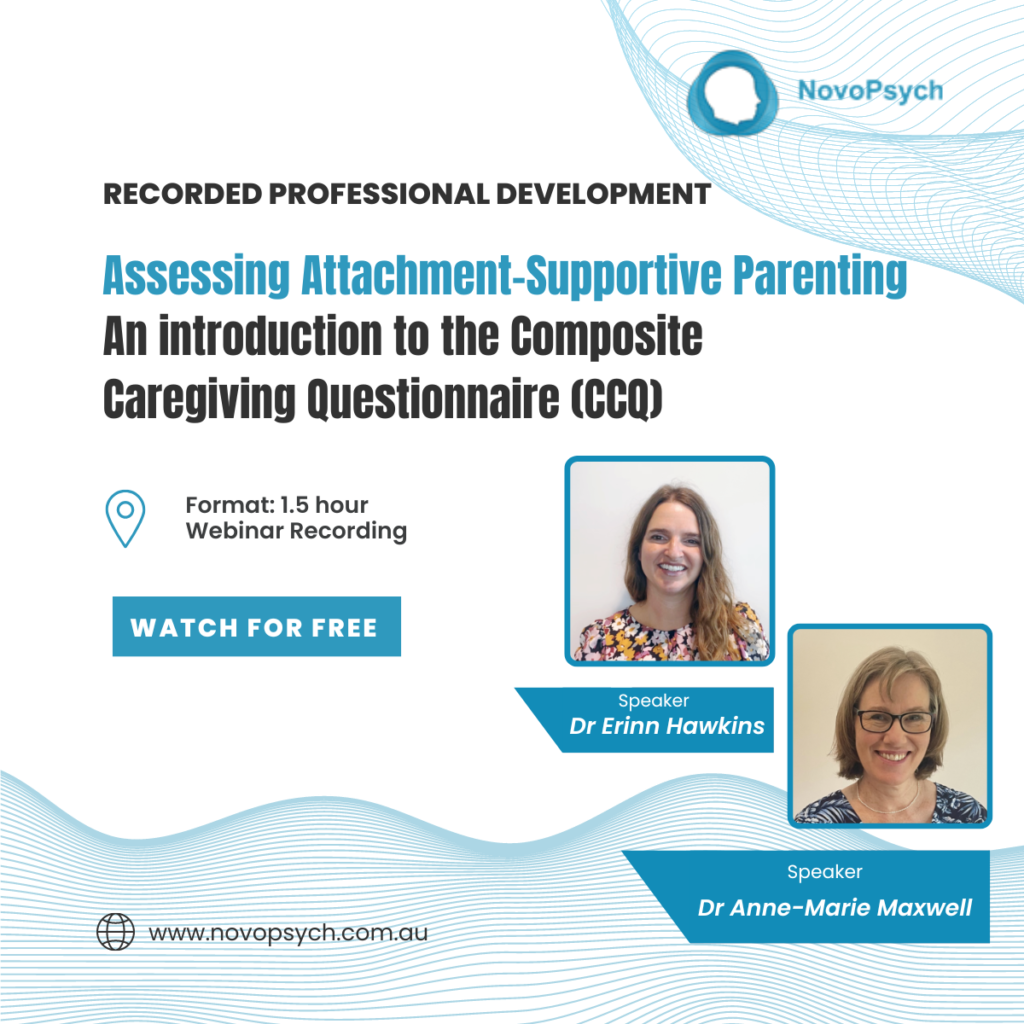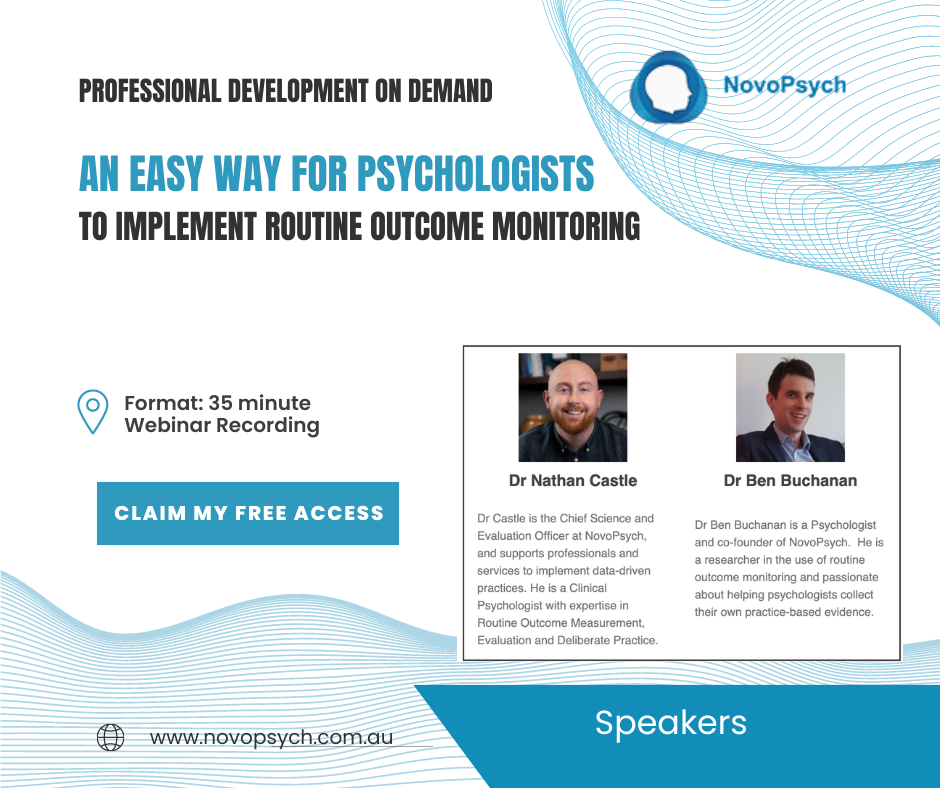Free Professional Development
We’re dedicated to equipping mental health professionals with cutting-edge and practical professional development. Our free training videos focus on psychological assessment practices, feedback-informed treatment, routine outcome monitoring and self-care for mental health clinicians. We also offer live training for mental health services on these topics. Contact us to discuss your organisations needs. For the NovoPsych user guide, click here.
Identifying Autism and ADHD in Adults.
A Neurodiversity-Affirming Approach in Clinical Practice
Join us for this empowering, free professional development on integrating Neurodiversity-Affirming principles into assessment and therapy, with prominent clinical psychologist, advocate and trainer, Monique Mitchelson.
Live Webinar : Monday 25th November 2024
Compassion Focused Therapy.
Compassion Motivation and Action in Clinical Practice
Join us for this engaging, free professional development with leading compassion focused therapy research and clinical psychologist, Dr Stan Steindl. We will explore the role of compassion in psychological therapies, as well as tools for tracking progress by monitoring change in compassionate motivation and action over time.
Live Webinar : Tuesday 22nd October 2024
The Bigger Picture as a Mental Health Clinician.
Leveraging Outcome Data for Insightful Practice
This free webinar is ideal for clinicians wanting to systematically monitor patient progress, and use that data to enhance their reflective practice. Practice leaders wanting to create practice-based evidence to demonstrate the effectiveness of their service will also benefit.
Measurement Based Care
in Mental Health Services
A conference presentation by Dr Ben Buchanan for the 2022 Australian Psychological Society’s College of Clinical Psychologists Conference. It provides an introduction to the basics of measurement based care.
Imposter Syndrome Among Mental Health Clinicians. How to Handle (and Harness) Professional Self Doubt
Imposter syndrome can affect psychologists and other mental health professionals at all stages of our careers.. Left unchecked, imposter syndrome can snowball into anxiety, perfectionism and feelings of inadequacy. But did you know that empirical evidence shows that professional self doubt is related to positive therapeutic alliance?
In this upbeat 1 hour webinar below we’ll explore empirical research related to professional self doubt
Defining Progress In Acceptance and Commitment Therapy
Join us for this insightful, free professional development on defining and tracking progress in Acceptance and Commitment Therapy (ACT), with one of Australian’s leading ACT research psychologists, Dr David Smout.
Understanding and Identifying Dissociation
and Dissociative Disorders
In this webinar, Dr Mary-Anne Kate explores dissociation and the dissociative disorders in adults and adolescents, including the prevalence, causes, and diagnostic features. She will introduce participants to the Multidimensional Inventory of Dissociation – 60 item version (MID-60) for adults and the adolescent version (MID-60-A).
Mindfulness in Practice:
Keys to Measuring Patient Progress during Mindfulness-Integrated CBT
This webinar will introduce mental health clinicians to two validated measures of mindfulness; the Mindfulness-based Self-Efficacy Scale (MSES-R) and Equanimity Scale 16 (ES-16).
Getting Started with NovoPsych.
How the Platform Works
This 8 minute video introduces the basics of the NovoPsych platform. Learn how to access NovoPsych, administer assessments via email or in person, interpret results and graph progress over time.
Routine Outcome Monitoring made simple
with the DASS-10
Published literature unequivocally shows that psychological therapy is effective, and research shows that augmenting standard therapy with a simple set of techniques can enhance outcomes even further. This webinar outlines a set of protocols to improve clinical outcomes as well as introducing the more challenging skill sets required to genuinely foster excellence in clinical practice.
Data Enhanced Supervision for
Mental Health Clinicians
Supervision is a staple of professional development among psychologists and other mental health clinicians. Unfortunately, research indicates that standard supervision does not improve professional performance or client outcomes.
This webinar recording, facilitated by psychologists Dr Nathan Castle and Dr Ben Buchanan, is designed for supervisors and supervisees . We explore a simple set of innovations that can improve the supervision experience for both parties.
Feedback Informed Treatment for
Mental Health Clinicians
This webinar with Psychologist Dr Nathan Castle focusses on how therapists can integrate a set of simple innovations into practically any form of psychological intervention. We will explore ways to gather feedback from your clients to know what you’re already doing right and areas you can improve upon.
Assessing Attachment-Supportive Parenting.
An introduction to the Composite Caregiving Questionnaire
This webinar will cover the structure and properties of the Composite Caregiving Questionnaire and its application in treatment planning and outcome monitoring of attachment-based interventions. We will provide a practical demonstration of the instrument using a case study.
An Easy Way for Psychologists to Implement
Routine Outcome Monitoring
This webinar aims to reinvigorate your understanding of how we can use psychometric assessments to improve patient outcomes, by
1) Considering why measuring client outcomes can help you and your clients
2) Defining ways to enhance care by decreasing client drop-out and improving client engagement
3) Introducing an easy-to-use model for implementing outcome measures to collect practice-based evidence
The Bigger Picture as a Mental Health Clinician.
Leveraging Outcome Data for Insightful Practice
This free webinar is ideal for clinicians wanting to systematically monitor patient progress, and use that data to enhance their reflective practice. Practice leaders wanting to create practice-based evidence to demonstrate the effectiveness of their service will also benefit.


